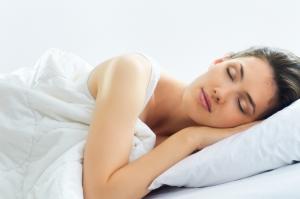
Perhaps you heard about the recent study on the amount of sleep enjoyed by modern hunter-gatherer societies, the full text actually available here as a nice nod to public interest and intelligence. In reality though, what most people read was the modern press version of the study, such as the NY Times article here. The NY Times questions whether we really need to sleep 7 hours a night, concluding we don't. However, by a process of reading carefully (the study, but not by me) and remembering other studies, I must respectfully disagree and conclude, again that we do need 7-8 hours of sleep, 30 minutes more or less, on a regular basis, if we want to thrive.
Reading Carefully
In fairness, the study authors did give the Times' writer Anahad O'Connor sufficient reason to jump to his conclusion, namely that many of us have come to the wrong conclusion about primitive people and sleep. In the Paleo world, and by many sleep commentators, it is assumed that people living before the era of electricity spent more time in bed, particularly in winter months and more time sleeping than our modern world with 24/7 electricity, wired connections and brightly lit rooms keeping us wakeful. The researchers granted that people spent more time in bed but claimed not much more time asleep.
Thanks to a careful read of the research by Dr. Kirk Parsley, the best modern resource for insight on the science of sleep, the researchers probably made an unfounded conclusion when they assumed the shorter sleep hours despite longer bed hours. You can read Dr. Parsley's excellent and thorough analysis of the research here. From a thorough reading, he was able to determine that the distinction the researchers made between time in bed and time actually asleep relied heavily on the accuracy of a probably questionable technology. The subjects were not taken into a true sleep lab, but rather measured by something that just quantified still vs. active time in bed, and is probably not a fair estimation of snooze time. We may just as reasonably imagine that their longer hours in bed were in fact largely spent sleeping.My intia
Remembering
My own disagreement with the study came from Dr. Parsley as well, a study that he shared in one of his talks. The data derived from a study of athletes performed at the Stanford Sleep Disorders Clinic and Research Laboratory. Collegiate athletes' skills were measured, comparing their baseline performance to that performed when they were allowed to and indeed sleep much longer hours, as much as possible in at least ten hours spent in bed each night. Their performance improved. And they felt much better physically and mentally when encouraged to sleep longer hours. I'll take some of that please.
Bottom Line, IMHO
Sleep somewhere between 7-8 hours nightly, keeping a regular sleep schedule, ideally sleeping in a cool room open to the outside temperatures. Cut yourself a little (just a half hour) slack on both of those parameters. Ideally, you go to bed when it's dark outside and start waking as the day begins to dawn. And perhaps as important, when you can't read the original research yourself, rely on someone you trust to do a careful reading for you!
